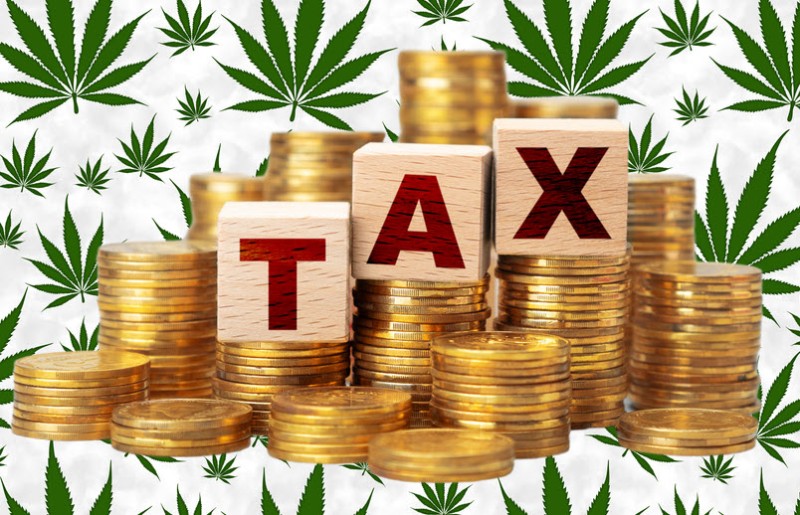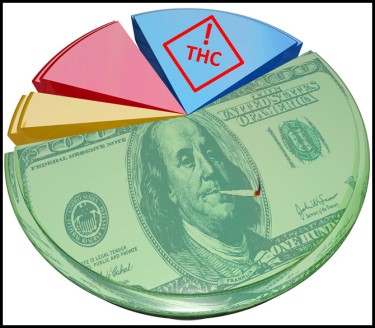
As Denver marks the 10th anniversary of legal adult-use marijuana sales, city officials have released an extensive report showcasing how hundreds of millions in cannabis tax revenue have supported crucial public services and initiatives over the past decade. This milestone not only reflects the city’s pioneering role in marijuana legalization but also highlights the significant impact of tax revenue on various sectors, including education, housing, and public safety.
Overview of Marijuana Legalization in Denver
As Marijuana Moment points out, in 2012 Colorado became the first state in the U.S. to legalize recreational marijuana, with legal sales commencing on January 1, 2014. This marked a significant shift in drug policy, aiming to reduce the black market for cannabis, generate tax revenue, and improve public health and safety. Denver emerged as the epicenter of this initiative, establishing itself as a national leader in cannabis regulation. The city has developed ordinances to regulate, license, and tax both medical and retail marijuana, making it a model for other jurisdictions. Since legalization, Denver has generated substantial tax revenue, contributing to essential public services and community programs. However, the cannabis market has faced challenges, including a decline in sales and the number of business licenses, indicating shifting consumer preferences. Overall, the legalization of marijuana in Denver has had profound economic and social impacts, shaping the landscape of drug policy in the United States.
Some have estimated the US is missing out on around $53 billion in Federal tax revenue and savings by not legalizing cannabis as the Federal level.
Financial Impact of Marijuana Tax Revenue
Revenue Generation
Since the legalization of cannabis, Denver has generated over $500 million in total tax revenue from adult-use and medical marijuana since 2010. In 2023, the city collected $48.1 million in marijuana tax revenue, reflecting a decline from its peak of $72.6 million in 2021. This trend highlights the fluctuations in the cannabis market and the challenges faced by the industry in recent years.
Allocation of Funds
The report published by city officials outlines the allocation of marijuana tax revenue in 2023, emphasizing the positive impact on public services:
-
Homelessness Services: $7,950,350
-
Affordable Housing: $7,533,272
-
Malone Fund: $3,737,674
-
Education: $3,320,871
-
Regulation: $2,360,672
-
Enforcement:$2,141,298
Specific Uses of Tax Revenue
1. Homelessness Services:
Funding has been allocated for shelters, outreach programs, and supportive housing initiatives, aimed at addressing homelessness and providing essential services to those in need. Additionally, the city has formed partnerships with local non-profits to deliver comprehensive support, ensuring that vulnerable populations receive the help and resources necessary for stability and recovery.
2. Affordable Housing:
Investments have been made in affordable housing projects to tackle the city's ongoing housing crisis, with a strong focus on supporting initiatives designed to reduce homelessness and provide stable housing for low-income residents. These efforts aim to create sustainable living conditions and improve the overall quality of life for those facing housing insecurity in the community.
3. Malone Fund:
A fund has been established to support community projects that benefit underserved populations, with grants awarded to local organizations that focus on health, education, and economic development. This initiative aims to empower these communities by providing essential resources and fostering opportunities for growth and improvement in various aspects of life.
4. Education:
Marijuana tax revenue has been allocated to provide scholarships for students pursuing higher education, particularly those from underserved communities, as well as funding for educational programs designed to prevent youth substance abuse. These investments demonstrate a commitment to expanding access to education and promoting healthy choices among young people, ensuring a brighter future for the city's youth.
5. Regulation and Enforcement:
Resources have been allocated to ensure compliance with cannabis regulations and to maintain public safety, reflecting the city's commitment to responsible cannabis management. Additionally, training programs have been implemented for law enforcement to effectively address cannabis-related issues, equipping officers with the knowledge and skills necessary to navigate the evolving landscape of cannabis laws and promote community safety.
Public Safety and Crime Reduction
Trends in Marijuana-Related Crime
-
Decrease in Marijuana-Related Offenses:
In 2023, marijuana-related offenses accounted for just 0.2% of total crimes in Denver, marking a significant decline from 2014, the year legal sales began. This reduction reflects the effectiveness of regulatory measures and the evolving landscape of cannabis law enforcement in the city, indicating a decrease in both illicit activities and crime associated with the cannabis industry.
-
Illicit Marijuana Seizures:
Law enforcement seizures of illicit marijuana have dramatically decreased from 9,504 pounds in 2014 to just 266 pounds in 2023. This significant decline indicates a reduction in black market activity and highlights the effectiveness of improved regulation within the legal cannabis market, demonstrating the positive impact of legalization on public safety and enforcement efforts.
Community Safety Initiatives
-
Youth Education Programs:
Marijuana tax revenue has been allocated to fund programs aimed at educating youth about the potential risks associated with marijuana use, while also fostering partnerships with schools and community organizations to promote healthy choices among young people. These initiatives demonstrate a proactive approach to substance abuse prevention and a commitment to safeguarding the well-being of Denver's youth.
Public Health Campaigns:
Initiatives have been implemented to inform the public about responsible cannabis use, including collaborations with health departments to address potential health risks associated with marijuana consumption. These efforts aim to educate the community on safe practices and promote awareness of the effects of cannabis, ultimately fostering a more informed and health-conscious public.
Economic Impact and Job Creation
Growth of the Cannabis Industry
-
Job Creation
The legal cannabis industry has created thousands of jobs in Denver, ranging from cultivation to retail, with employment opportunities spanning various roles such as compliance, marketing, and sales. As the industry continues to grow, these job opportunities are attracting applicants from across the country who are eager to be part of Denver's thriving cannabis community
-
Economic Contributions:
Cannabis businesses significantly contribute to the local economy through job creation and tax revenue, bolstering Denver's financial landscape. Additionally, the industry supports a variety of ancillary businesses, including security, transportation, and packaging services, which further enhances economic growth and fosters a diverse ecosystem of employment opportunities within the community.
Challenges Faced by the Industry
-
Regulatory Hurdles
Cannabis businesses often encounter complex regulations that can hinder their growth and expansion, creating challenges in navigating the legal landscape. In response to these difficulties, ongoing discussions are taking place regarding potential reforms aimed at streamlining the regulatory process, which could facilitate a more conducive environment for the industry to thrive and innovate.
-
Market Saturation
From January 2023 to January 2024, there has been a 7% decline in the number of cannabis business licenses in Denver, with medical marijuana licenses accounting for the majority of this decrease. This trend suggests a shift in consumer preferences, as more individuals may be opting for recreational use over medical cannabis, reflecting the evolving dynamics of the local cannabis market.
Community Engagement and Equity Initiatives
Commitment to Equity
-
Equity Programs:
Denver has implemented programs to ensure equitable access to the cannabis industry for marginalized communities, focusing on providing resources and support for minority-owned cannabis businesses. These initiatives aim to rectify historical injustices by empowering individuals who have been disproportionately impacted by previous drug policies, thus fostering a more inclusive and diverse cannabis market that benefits all members of the community.
-
Community Outreach
City officials have actively engaged with community members to gather feedback and address concerns related to cannabis legalization, recognizing the importance of public input in shaping effective policies. Through public forums and workshops, they aim to educate residents about both the benefits and challenges of legalization, fostering an informed dialogue that helps the community navigate the complexities of the cannabis landscape.
Upcoming Initiatives
-
Continued Investment in Public Services
Denver officials remain committed to using cannabis tax revenue to fund essential public services in the years ahead, with ongoing assessments of community needs to ensure the effective allocation of funds. As the city enters the second decade of legal marijuana sales, the focus remains on addressing pressing issues such as homelessness, affordable housing, education, and public health, while adapting to the evolving dynamics of the cannabis industry and the needs of the community.
-
Exploration of Psychedelics Regulation
As Colorado implements a new statewide psychedelics legalization law, Denver has formed a work group to explore local regulations in this emerging market. The city aims to apply lessons learned from cannabis legalization to ensure responsible regulation of psychedelics, focusing on creating a framework that promotes safety and efficacy while addressing community concerns and needs.
Conclusion
As Denver looks ahead to the next 10 years of legal marijuana, city leaders are touting the benefits of regulated cannabis sales and the positive impact of tax revenue on public services. The city’s experience serves as a model for other jurisdictions considering legalization, demonstrating the potential for cannabis to contribute to public safety, economic growth, and community well-being.
TWO STATES NOW GET MORE TAX REVENUE FROM WEED THAN ALCOHOL AND TOBACCO, READ ON..







